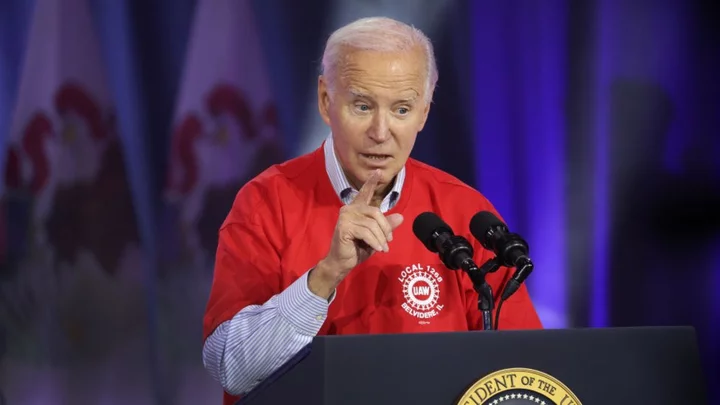
Biden says 'vermin' rhetoric by Trump echoes Nazis
The president argues such language evokes 1930s Germany. A Trump aide says the Biden claim is "despicable".
2023-11-16 10:47
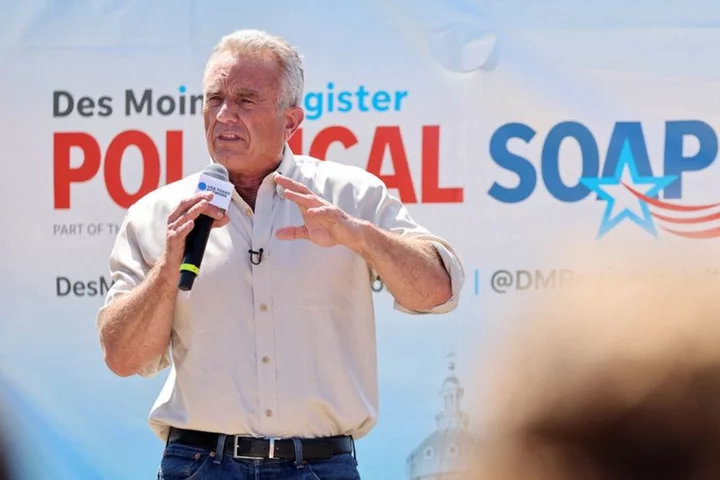
Robert Kennedy Jr to run as independent, could complicate Trump, Biden 2024 contest
By Heather Timmons U.S. presidential hopeful Robert F. Kennedy Jr. will announce he is running as an independent
2023-09-30 07:54

Southern California man convicted in 2018 spa bombing that killed ex-girlfriend
A Southern California man was convicted Wednesday of blowing up his ex-girlfriend’s spa business with a package bomb in 2018, killing her and seriously injuring two clients. A federal jury in Los Angeles convicted Stephen Beal of four felonies including use of a weapon of mass destruction resulting in death, according to a statement from the U.S. attorney's office. Beal could face at least 30 years and up to life in prison when he's sentenced in November. He was retried after a mistrial was declared last year when the jury deadlocked. Beal, 64, of Long Beach, was charged with killing Ildiko Krajnyak on May 15, 2018, with a homemade package bomb he slipped into her Aliso Viejo spa, about 50 miles (80 kilometers) south of Los Angeles. Krajnyak, 48, was killed in the fiery blast when she opened the box. Two clients — a mother and daughter — she had just treated were knocked off their feet. The blast destroyed the business and tore a large hunk from the building. Body parts were found in the parking lot. Beal, a partner in the salon business, was jealous Krajnyak had been dating someone else after their 18-month relationship ended, and he developed a “plan to destroy her,” U.S. Attorney Annamartine Salick said in an opening statement at Beal's first trial. While Krajnyak was in Hungary visiting family, Beal left the bomb at the spa for her to open when she returned, according to the U.S. attorney's statement. A day after the explosion, investigators searched Beal's home and found more than 130 pounds (59 kilograms) of explosive mixtures and precursor chemicals, the statement said. “Beal had years of experience building high-powered model rockets and homemade pyrotechnics," according to the statement. “Laboratory testing determined that the explosive mixture Beal used in the bomb came from the same chemicals he had at his home.” Beal also was found guilty of malicious destruction of a building resulting in death, use of a destructive device during and in relation to a crime of violence, and possession of an unregistered destructive device. Read More Ukraine war’s heaviest fight rages in east - follow live Charity boss speaks out over ‘traumatic’ encounter with royal aide
2023-07-20 09:19
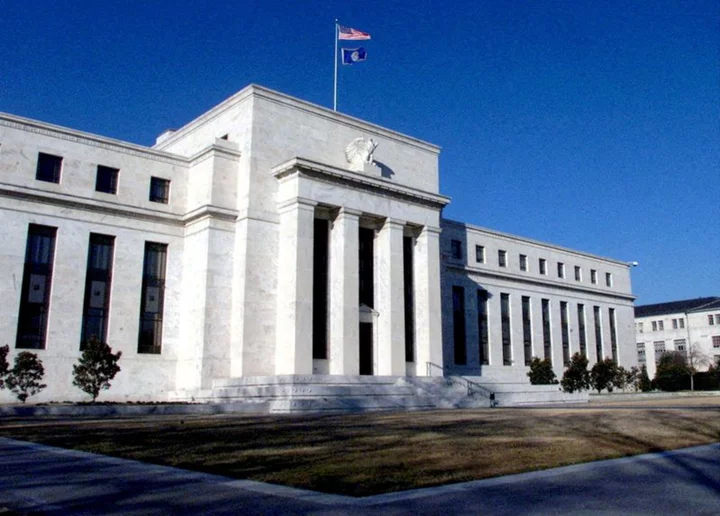
Fed doves, Fed hawks: US central bankers in their own words
The labels “dove” and “hawk” have long been used by central bank watchers to describe the monetary policy
2023-09-30 03:47

Las Vegas Aces star A’ja Wilson scores 53 points, ties WNBA single-game record
A’ja Wilson matched the WNBA record for points in a game with 53 as the Las Vegas Aces beat the short-handed Atlanta Dream 112-100
2023-08-23 12:15
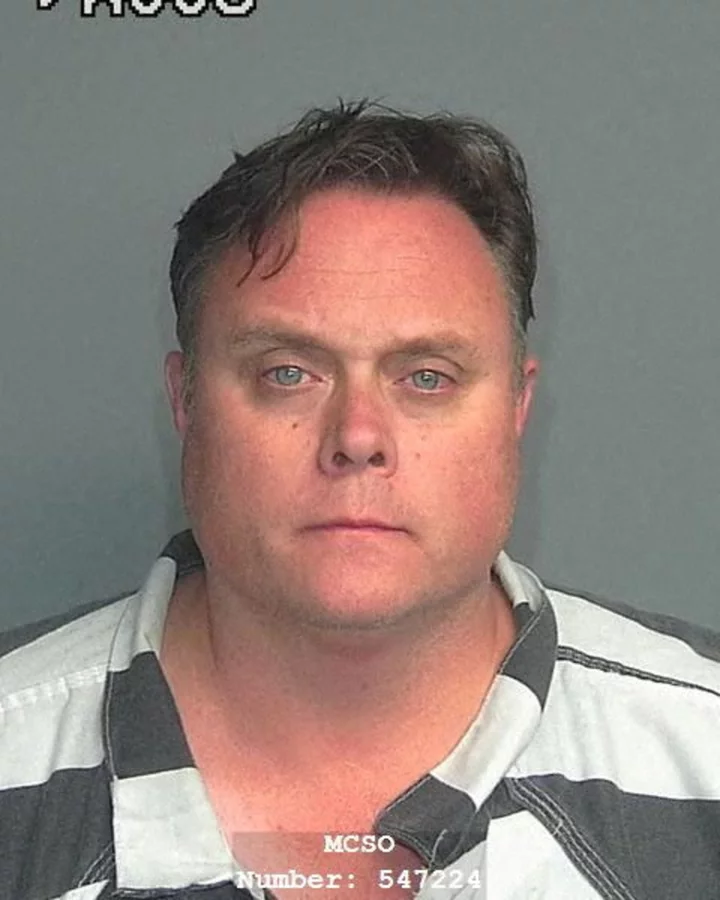
Exxon's shale oil chief faces arraignment on sexual assault charge
HOUSTON The head of Exxon Mobil's multi-billion-dollar shale oil business on Oct. 25 is scheduled to be appear
2023-10-11 05:47

Kylian Mbappe ‘very happy’ at PSG and says he will see out contract next season
Kylian Mbappe says he is “very happy” at Paris St Germain and plans to remain with the club until his contract expires at the end of next season. The 24-year-old has suddenly become one of the hottest properties on the summer transfer market after it emerged on Monday that he had presented PSG with a formal letter stating he would not activate an extension to his deal. That means he would be out of contract and able to depart for nothing in 12 months’ time, leaving the French club looking to either negotiate a new contract or accept the highest offer possible this summer. Real Madrid, who were desperate to sign the player last year and who have recently lost Karim Benzema to Saudi club Al Ittihad, are sure to be interested again, but Mbappe took to Twitter on Tuesday to describe reports he wants to join the Spanish side this summer as “lies”. And he added: “I have already said that I will continue next season at PSG, where I am very happy.” The former Monaco forward extended his PSG deal just over a year ago to end Real’s pursuit at that point, but a statement from his management to the AFP news agency on Tuesday says the club were informed on July 15 last year that the player would not activate an option to extend the deal to 2025. “Kylian Mbappe and his entourage confirm that this matter has not been discussed since over the course of the year, except a fortnight ago to announce the sending of the letter,” the statement read. “No potential contract extension has been mentioned.” The statement said Mbappe and his management “regret that the letter was circulated in the media and that these exchanges were made public with the sole aim of damaging their image and the discussions with the club”. Read More Charity boss speaks out over ‘traumatic’ encounter with royal aide Ukraine war’s heaviest fight rages in east - follow live
2023-06-13 22:28
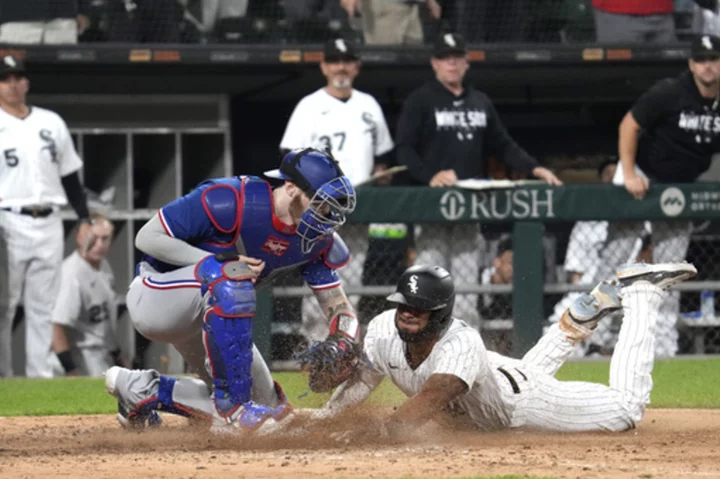
Rule against blocking the plate leading to outs becoming runs even without a collision
The rules have changed since Bob Melvin and Bruce Bochy were big league catchers when big collisions with runners trying to score were just part of the game
2023-06-23 07:24
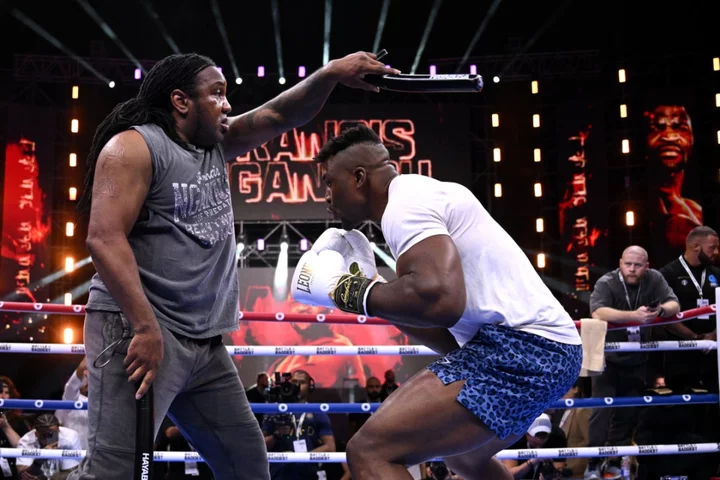
Fury vs Ngannou rules: How many rounds and do knockouts count tonight?
Tyson Fury will go up against Francis Ngannou in a crossover heavyweight clash in Saudi Arabia tonight. In one corner will be Fury, the unbeaten WBC champion; in the other, Ngannou, who reigned as UFC champion until he left the MMA promotion in January. • Follow live: Fury vs Ngannou live fight updates and results tonight • Fury vs Ngannou betting tips: Predictions and best odds The Cameroonian will make his boxing debut here, before returning to mixed martial arts with the Professional Fighters League in 2024. Meanwhile, Fury will next face unified boxing champion Oleksandr Usyk, in a bid to crown the first undisputed champion in over two decades. Here’s all you need to know. We may earn commission from some of the links in this article, but we never allow this to influence our content. This revenue helps to fund journalism across The Independent. When is the fight? The fight will take place on Saturday 28 October in Riyadh, Saudi Arabia. The main card is expected to start at 6pm BST (10am PT, 12pm CT, 1pm ET). Ring walks for the main event are then expected at around 10.45pm BST (2.45pm PT, 4.45pm CT, 5.45pm ET). How can I watch it? In the UK, the event will air live on TNT Sports Box Office at a cost of £21.95 for viewers in the UK. In Ireland, the event will cost €29.99 if purchased in advance or €34.99 on the day of the fights. Viewers do not need to have a TNT subscription in order to purchase the event. In the US, the event will stream live on ESPN+ pay-per-view. Watch Fury vs Ngannou live on Dazn globally, by clicking here – excluding USA, UK/Ireland, and Canada. If you’re travelling abroad and want to watch the event, you might need a VPN to unblock your streaming app. Our VPN round-up is here to help and includes deals on VPNs in the market. Viewers using a VPN need to make sure that they comply with any local regulations where they are and also with the terms of their service provider. Odds Fury – 1/14 Ngannou – 15/2 Draw – 28/1 Via Betway. • Get all the latest boxing betting sites’ offers What are the rules? This will be a heavyweight boxing match, with no MMA rules involved. The fight is scheduled for 10 three-minute rounds, with a victor being decided on points or via knockout/TKO. The result is expected to count towards Fury’s professional boxing record – which is 33-0-1, and Ngannou’s, which is 0-0 – but the Briton’s WBC title will not be on the line. What is the prize money? Fury has said, via the Mirror, that Ngannou will be earning $10m for the fight. Meanwhile, Derek Chisora has claimed, via The Sun, that Fury will be making $50m. That is not believed to factor in sponsorships. Full card (subject to change) Tyson Fury vs Francis Ngannou (heavyweight) Fabio Wardley vs David Adeleye (heavyweight) Joseph Parker vs Simon Kean (heavyweight) Martin Bakole vs Carlos Takam (heavyweight) Arslanbek Makhmudov vs Junior Anthony Wright (heavyweight) Moses Itauma vs Istvan Bernath (heavyweight) Jack McGann vs Alcibiade Duran (super-welterweight) Read More Amir Khan gifts Eminem luxury watch before clashing with fan over gesture Cristiano Ronaldo ‘punches’ Tyson Fury as pair joke ahead of Francis Ngannou fight How much money are Fury and Ngannou earning for fight tonight? Who is fighting on the Fury vs Ngannou undercard tonight? What time does Fury vs Ngannou start tonight? When is the Fury vs Ngannou fight and how to stream online and on TV tonight
2023-10-29 00:50
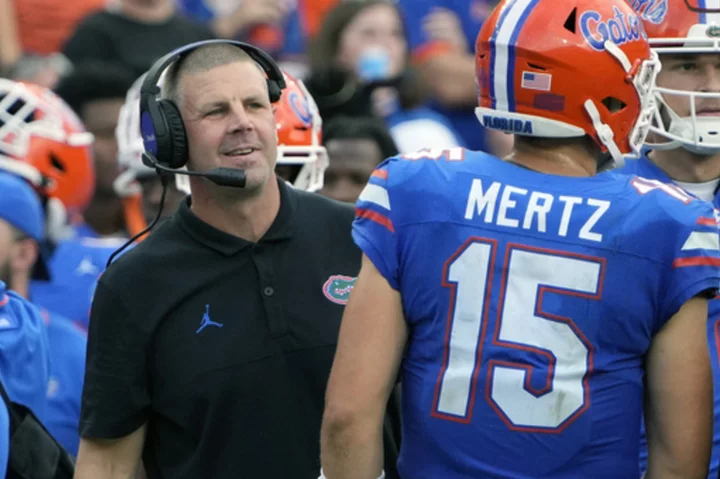
Florida rebounds from Kentucky debacle, handles Vanderbilt 38-14 in the Swamp
Graham Mertz threw three touchdown passes, including two to Arlis Boardingham, and Florida handled Vanderbilt 38-14
2023-10-08 07:57
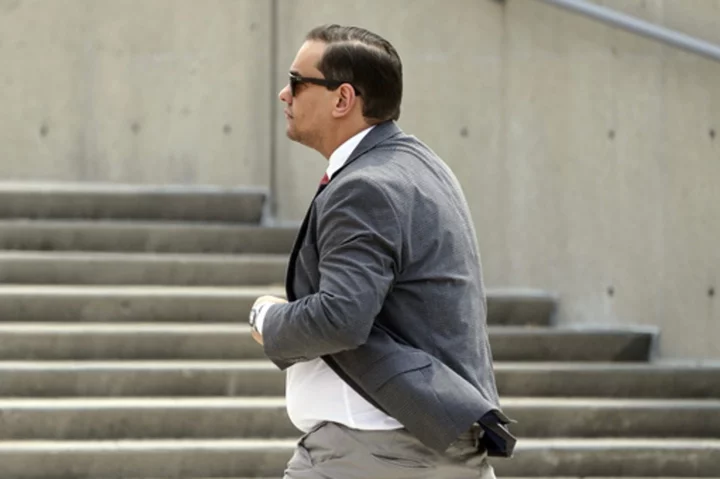
Prosecutors in Rep. George Santos' case say they have given his defense over 80K pages of material
Prosecutors U.S. Rep. George Santos' case say they’ve turned over more than 80,000 pages of materials to his lawyers in the federal criminal case against him
2023-07-01 00:45
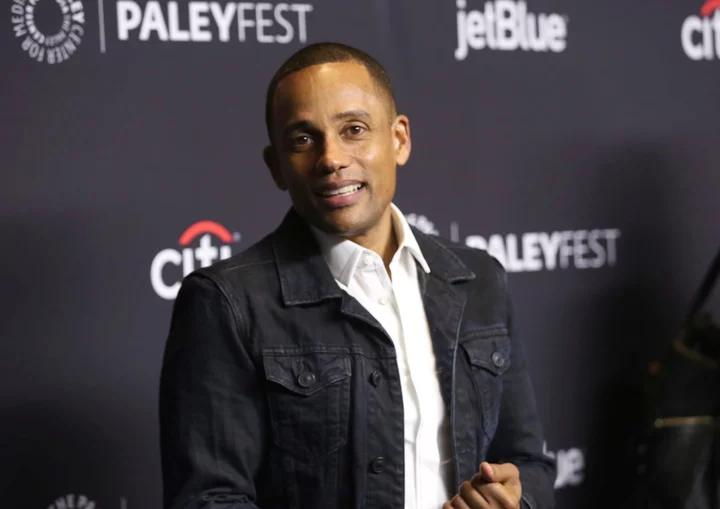
The Good Doctor and CSI star running for US senate
Hill Harper, an actor known for his roles on “CSI: NY” and “The Good Doctor,” announced on Monday that he is running for Michigan's open U.S. Senate seat and challenging U.S. Rep. Elissa Slotkin for the Democratic nomination. Harper is the sixth Democratic candidate to enter the race for retiring Democratic Sen. Debbie Stabenow's seat. Stabenow announced in January that she would not be seeking a fifth term in 2024 in the battleground state. Born in Iowa, Harper owns a house in Detroit and bought a coffee shop, Roasting Plant Coffee, in the city in 2017. He attended Brown University and Harvard Law School before becoming an actor. He starred on the CBS show “CSI: NY” for nine seasons and currently appears on ABC's “The Good Doctor.” Harper was appointed to President Barack Obama's cancer panel in 2012 as a survivor of the disease himself. In an interview with The Associated Press before his announcement, Harper described himself as a small-business owner, a union member and an activist. He said that not being a “career politician” would serve as an advantage in Congress and that he plans to run a campaign “powered by the people, for the people.” “It’s not about party. It’s about people feeling represented,” Harper said. “And being an independent voice in the U.S. Senate is something I believe Michiganders want right now.” Harper faces a tough test in catching Slotkin in both fundraising and campaigning. Slotkin has raised $5.8 million in just over four months, according to her campaign, and $3.6 million of it remains unspent. She has been endorsed by fellow U.S. Rep. Haley Stevens, a Democrat who represents parts of suburban Detroit. Many top Democratic candidates who had been considering a run for the Senate opted against it before Slotkin's February announcement, seemingly clearing the field for the third-term representative who rose to prominence by consistently winning one of the nation's most competitive House seats. But the field of Democratic candidates has grown in recent months. State Board of Education member Pamela Pugh, former Detroit state Rep. Leslie Love, businessman Nasser Beydoun and attorney Zack Burns have all announced campaigns. Michigan remains a must-win state for Democrats if they hope to maintain control of the Senate, with tough races expected in Ohio, West Virginia, Montana, Nevada and Pennsylvania. In 2020, Republican John James, now a U.S. representative, narrowly lost to incumbent Democratic Sen. Gary Peters. While two GOP candidates have announced, including state Board of Education member Nikki Snyder, Republicans have yet to find a high-profile contender to vie for the seat. Several potential candidates, including former U.S. Rep. Peter Meijer, are considering bids. Republicans have taken just one of Michigan’s last 15 Senate races, winning an open seat in 1994. Also Monday, Former state Sen. Curtis Hertel Jr., a Democrat, will announce his bid for Slotkin’s seat in the 7th Congressional District, one of the nation’s most competitive House districts. Republican Sen. Tom Barrett launched his second run for the seat Sunday night. Read More Ukraine war’s heaviest fight rages in east - follow live Charity boss speaks out over ‘traumatic’ encounter with royal aide A Libyan court jails 38 human traffickers over the deaths of 11 Europe-bound migrants at sea Republican's hold on nominations leaves Marines without confirmed leader for 1st time in 100 years The Good Doctor and CSI star running for US senate
2023-07-11 02:51
You Might Like...

How much did Jack Ma's speech cost Ant Group? About $230 billion

Second-seeded Sakkari books Guadalajara WTA title clash with Dolehide
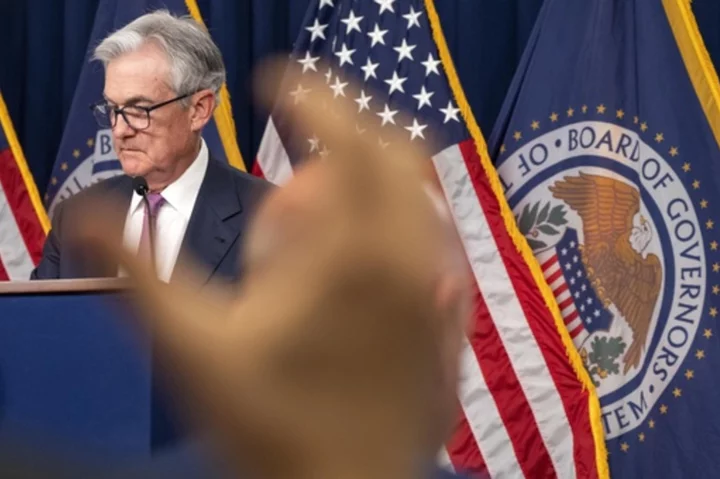
Federal Reserve minutes: Some officials wanted to raise interest rates last month
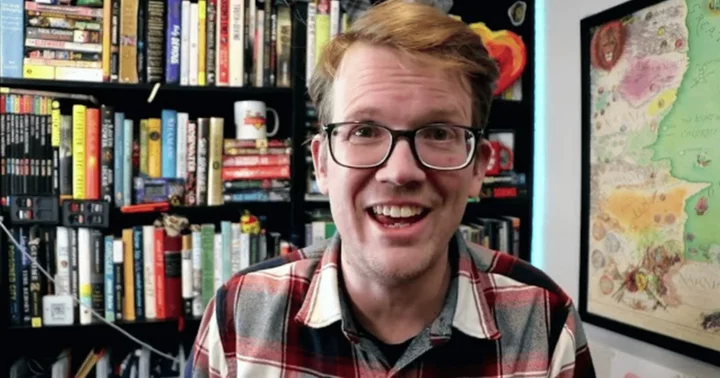
Hank Green: A look at successful YouTuber's social media journey

Microsoft Outlook will soon write emails for you

When is the 2024 NHL Winter Classic?
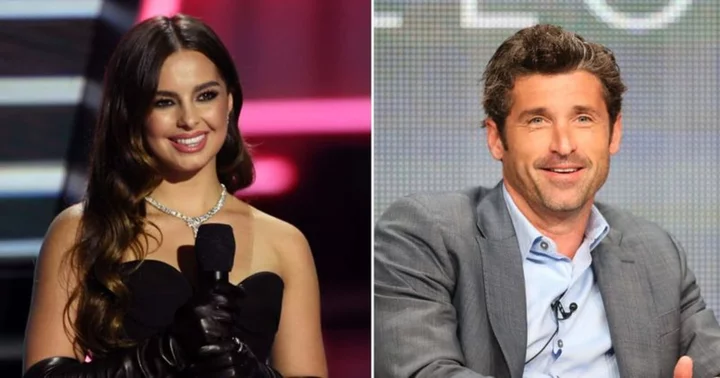
Addison Rae and Patrick Dempsey star in Eli Roth's bloody 'Thanksgiving', set stage for Halloween season

Analysis-China's pitch to foreign investors falls flat as incentives dwindle
